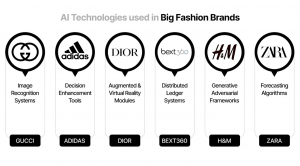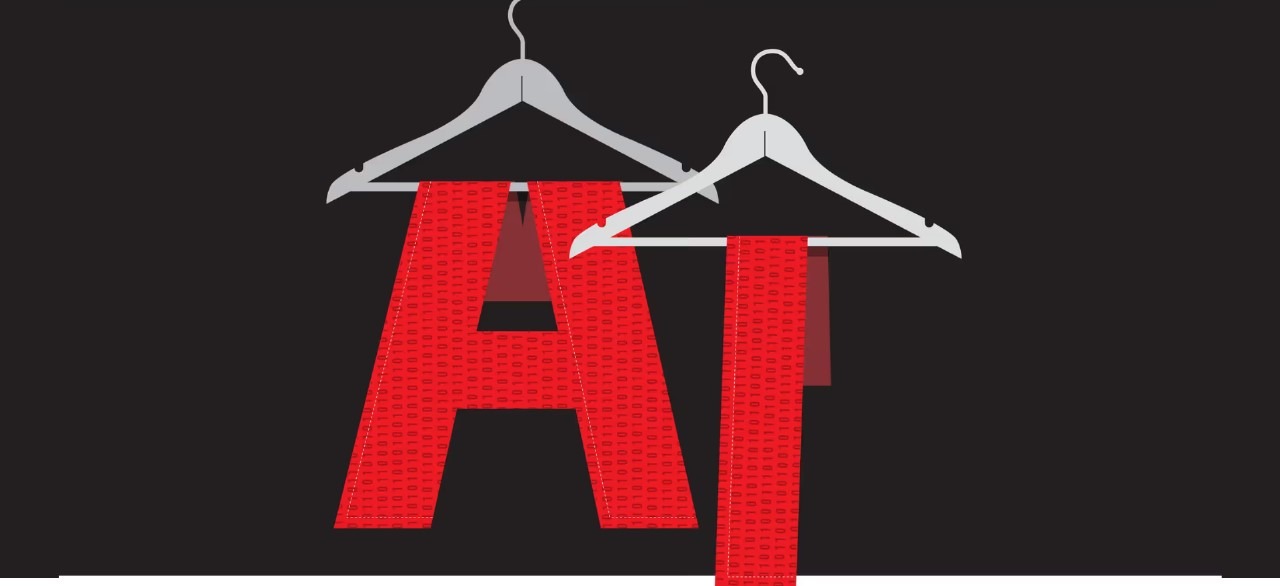To succeed in the ever-changing fashion market, it is critical to foresee trends, produce unique designs, and adapt to client preferences. The emergence of artificial intelligence (AI) is transforming the industry, allowing designers, merchants, and brands to innovate in previously inconceivable ways. AI has evolved into a vital tool in the fashion industry, from trend prediction to garment design and tailored suggestions.
Predicting Fashion Trends
Fashion is famously cyclical, and it is frequently impacted by a complex web of cultural, social, and economic forces. Historically, anticipating fashion trends relied mainly on the intuition of experienced designers, trend forecasters, and market analysts. However, artificial intelligence (AI) is transforming this process by providing a more data-driven approach.
AI algorithms may detect upcoming trends by analysing massive data from multiple sources, such as social media, fashion blogs, runway events, and retail sales. AI can recognize trends and anticipate which designs, colours, and materials will be popular in future seasons by processing and analysing this data. For example, artificial intelligence can monitor the frequency and sentiment of certain fashion-related terms on social media sites, delivering real-time insights into customer preferences.
Moreover, AI-powered trend forecasting tools can identify microtrends before they become mainstream, giving designers and brands a competitive edge. These tools can also help fashion businesses reduce the risk of overproduction and excess inventory by predicting demand more accurately, leading to more sustainable practices in the industry.

AI-Assisted Fashion Design
AI is also influencing the creative process of fashion design. While the concept of robots designing clothes may appear futuristic, AI technologies are already being used to help designers generate new ideas, optimize designs, and even create complete collections.
One method AI is aiding with design is through the use of generative design algorithms. These algorithms may generate a large number of design variations depending on a set of baseline characteristics, such as colour, fabric type, and style. Designers may then pick from these versions or fine-tune them, saving time and spurring creativity.
AI can also analyse past designs and consumer feedback to identify successful elements, such as popular silhouettes or colour combinations. This information can be used to create new designs that are more likely to resonate with consumers. Additionally, AI can help in the technical aspects of design, such as pattern-making and fabric draping, by simulating how different materials will behave and fit on a human body.
Another exciting development is the use of AI in creating custom-fit clothing. By analysing a customer’s body measurements and preferences, AI can generate designs that are perfectly tailored to the individual, leading to a more personalized and comfortable fit.
Personalizing fashion recommendations
In an age where personalization is critical to consumer pleasure, AI is allowing fashion firms to provide highly tailored purchasing experiences. AI-powered recommendation engines examine a user’s browser history, purchasing habits, and even social media activity to offer apparel products that fit their style preferences.
These recommendation systems employ machine learning algorithms to improve their accuracy over time. As more data is collected, the AI improves its ability to comprehend the user’s preferences and suggests more relevant products. This tailored strategy improves not just the shopping experience but also client loyalty and sales.
AI is also being used to create virtual stylists that can offer personalized fashion advice. These virtual stylists can recommend outfits based on the user’s existing wardrobe, upcoming events, or even the weather. By integrating AI with augmented reality (AR), some brands are offering virtual try-on experiences, allowing customers to see how clothes will look on them before making a purchase.
Challenges and Future Prospects
While AI has significant benefits for the fashion business, it also poses obstacles. One of the main worries is the possible loss of the human touch in fashion design. While AI can create designs and forecast trends, it lacks the emotional and cultural complexity that human designers bring to the table. Balancing the usage of AI with human creativity will be critical to the future of fashion.
Another problem is ethical considerations about data privacy. Because AI relies significantly on data to function, ensuring that consumer data is acquired and utilized properly is critical. Brands must be open about their data practices and emphasize consumer consent.
While AI has significant advantages for the fashion industry, it also causes challenges. One of the most important challenges is the potential loss of personalization in fashion design. While AI can generate ideas and predict trends, it lacks the emotional and cultural nuances that human designers bring to the table. Balancing the use of AI with human creativity is important to the future of fashion.
Another challenge is the ethical implications of data privacy. Because AI relies heavily on data, artificial intelligence in fashion: trend prediction, clothing design, and personalized recommendations
In conclusion, artificial intelligence (AI) is revolutionizing the fashion industry by transforming trend prediction, enhancing the design process, and offering personalized shopping experiences. By analyzing vast amounts of data, AI enables fashion brands to predict trends with greater accuracy, optimize designs, and provide custom-fit clothing and tailored recommendations. However, challenges remain, particularly in maintaining the human touch in design and addressing data privacy concerns. The future of fashion will depend on balancing the power of AI with human creativity and ethical considerations, leading to more innovative and personalized experiences for consumers.



Leave a Comment